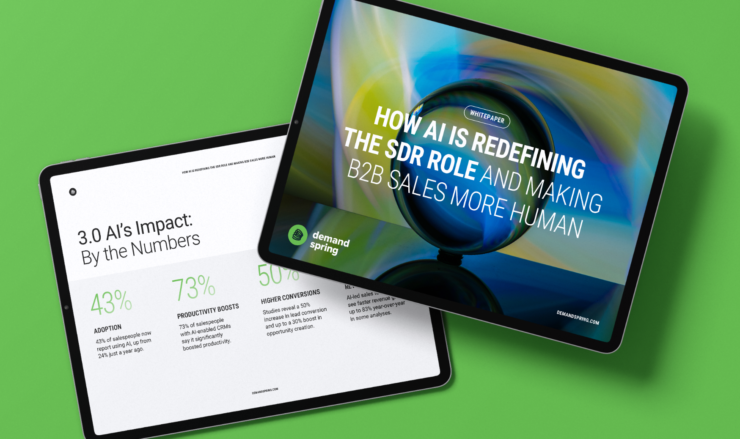Shortly before the holiday hiatus, Content Marketing Institute, MarketingProfs and On24 published the 13th Annual B2B Content Marketing Benchmarks, Budgets and Trends Report. A report that I look forward to every year and one of the few that I review several times.
With each report, there are a few things that catch my eye and leave me scratching my head. This year is no different.
The overwhelming response by the 71% of respondents, is that content marketing has become more important in their organizations in the past year. This should come as no surprise given that content is the fuel for so many of marketing’s disciplines and the best way to connect with customers.
However, I am not certain that the importance that is stated by the respondents is followed up by the stewardship needed to make content marketing as valuable as it could be.
Here is my take on some of the insights from the study. While there were many, time and space will not permit me to highlight them all, so I have selected a few in the hopes that it will help your organization improve the use of content marketing and your Revenue Marketing strategy.
Insight #1: There is no strategy
In order to get the full value from content marketing, there must be a strategy. However when asked, only 40% stated that they had a documented strategy, and 33% stated that they had a strategy, but “it was not documented.”
At the risk of raining on the parade of the 33%, if there is no documentation of a strategy then there is no strategy. It simply exists in the minds of those that are creating the content.
Compare this to the 2014 study that was conducted by CMI and there is a 4% drop in organizations that have a documented content marketing strategy. This is rather alarming given that 71% said it is increasing in importance. If it is that important within the organization it would merit the time to define, document and share the strategy across the business. This would also underscore the importance of content marketing to other business stakeholders.
What is the outcome of having no documented strategy? That can be found in two other questions in the report and the subsequent responses.
The first question, “If you could change one thing about content marketing in your organization, what would that be?”
The responses varied, but the top four listed below are telling:
- Content marketing buy-in
- A content marketing strategy/strategic approach to content marketing
- More budget and additional staff
- More access to subject matter experts (SMEs)
It should come as no surprise that all of these are hard to come by. If you cannot demonstrate there is a clear and concise strategy for content marketing, then you will have an extremely difficult time overcoming the challenges.
The second question was focused on content effectiveness and only 4% stated that they are extremely successful, while the majority (56%) stated they are moderately successful. I don’t know about you, but I don’t wake up every morning hoping I am moderately successful in my work.
The bottom line here is that you have to have a strategy that is documented and that strategy has to be defined with your customers in mind.
Insight #2: Content isn’t king
The refrain of content being king is a myth and something that I addressed in The Ultimate Guide for Revenue Marketing Leaders eBook which was published at the end of 2022.
While content is a way brands can connect with customers, it is the customer who is king. This will not change any time soon no matter how many times we want to put content before customers.
This may be why 61% of respondents stated that their top challenge when creating content was creating content that appeals to different stages of the buyer’s journey.
It is something I see so often in organizations – creating content for contents sake and it is clear that it is missing the mark.
In order to create content that works, the organization must have a clear picture of their audience and understand the customer’s full journey, from pre to post-purchase. Without this insight content creation is simply a guessing game.
Good content is relevant and contextual to your audience and this can only be found by doing the foundational work t of defining your Ideal Customer Profile (ICP) and documenting the personas and customer lifecycle journey.
Once you do this you will find you will stop creating more content and begin creating better content.
Insight #3: Measure twice, cut once
Measuring the impact of content marketing is a priority for 81% of marketers, but when you look at what they are measuring, return on investment (ROI) was nowhere to be found. According to the report, marketers listed conversions, quality of leads and website engagement as their top metrics.
While these are important metrics (and the definition of conversion needs to be aligned with sales), it is concerning that marketers are not looking at revenue impact and ROI as key metrics. This is what is important to the business and will help make the case for content marketing going forward.
Marketers need to understand the impact these investments are making and much of the metrics that are listed do little to demonstrate how content marketing investments serve as a growth engine for business.
I am a big believer in content marketing when it is done right. However, this study seems to indicate that for all of the effort that is being put into the discipline of content marketing, there is still a long way to go to demonstrate the business value and the impact on revenue.
I would love to hear your feedback on my outlook or ideas on something that I may not have addressed. You can deliver that feedback by emailing me directly at carlos@demandspring.com. If you want to talk more about your content marketing and how you may be able to improve it for 2023, put some time on my calendar and I will be happy to connect.




